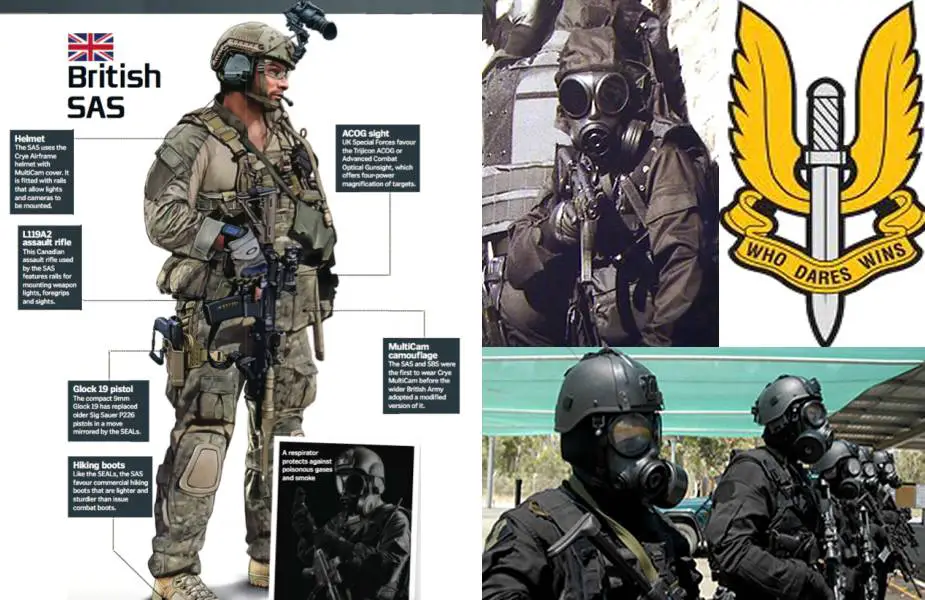SAS Special Air Service of British Army considered as one best Special Forces units in the world
The Special Air Service, commonly known as the SAS, is considered as one of the best special forces units in the world. As a unit within the British Army, the SAS has a storied history and an unparalleled reputation for effectiveness, adaptability, and a rigorous selection process that ensures it attracts only the finest soldiers.
Follow Army Recognition on Google News at this link

The British Army SAS Special Air Service is one of the best Special Forces units in the world. (Picture source Pinterest)
History
The SAS was founded in 1941 during World War II by Lieutenant David Stirling, a young officer who believed that a small, specialized team could inflict more damage to the enemy's ability to fight than a much larger force. The unit's inaugural mission, Operation Crusader, saw them parachute behind enemy lines in North Africa to attack German airfields. Despite losing a significant number of men, they successfully destroyed dozens of enemy aircraft.
In the following years, the SAS expanded its operations across North Africa and into Europe, disrupting enemy supply chains, gathering intelligence, and conducting sabotage operations. Despite being disbanded after the war, the SAS was quickly reformed in 1947 to meet the emerging challenges of the post-war era, including the Cold War and subsequent conflicts in the Malayan Emergency and Borneo Confrontation.
Operations and Roles
Over the decades, the SAS has evolved into a multi-purpose special forces unit with a range of capabilities. Its main roles are divided into two categories: counter-terrorism and 'general duties'. The counter-terrorism role is primarily filled by the Special Air Service Regiment (SASR), which provides the UK's primary counter-terrorism response force.
The 'general duties' role covers a wide range of operations, including reconnaissance, direct action, hostage rescue, human intelligence gathering, and foreign internal defense. The SAS is also tasked with strategic reconnaissance, offensive operations deep behind enemy lines, and support of friendly governments against insurgency or terrorism.
In recent years, the SAS has been involved in a wide variety of conflicts and missions, including the Falklands War, the Persian Gulf War, the War in Afghanistan, and the War against ISIS in Iraq and Syria. These missions have required the SAS to operate in a variety of environments, from the desert landscapes of the Middle East to the dense jungles of Southeast Asia and the harsh winter conditions of the Falklands.
Training and Selection
The SAS has one of the most demanding selection processes in any military worldwide. The process involves both physical and psychological tests designed to push candidates to their limits. Only the very best candidates - often less than 10% - successfully pass the selection process and are invited to undertake further training.
Once selected, soldiers undergo a grueling training regime, including survival skills, jungle training, mountain climbing, and arctic warfare. They are also trained in parachute jumps, both static line and HALO (High Altitude, Low Opening), to ensure they can be deployed anywhere in the world.
Significance and Legacy
The SAS has had a profound impact on how modern militaries conceive of and employ special forces. Their success has led to the creation of similar units around the world, including the US Delta Force and the Australian SASR.
The Special Air Service's motto, "Who Dares Wins", encapsulates the audacious spirit and exceptional bravery that defines this special forces unit. In its decades of service, the SAS has exemplified the best of the British Army and continues to set a benchmark for special forces units worldwide.





























